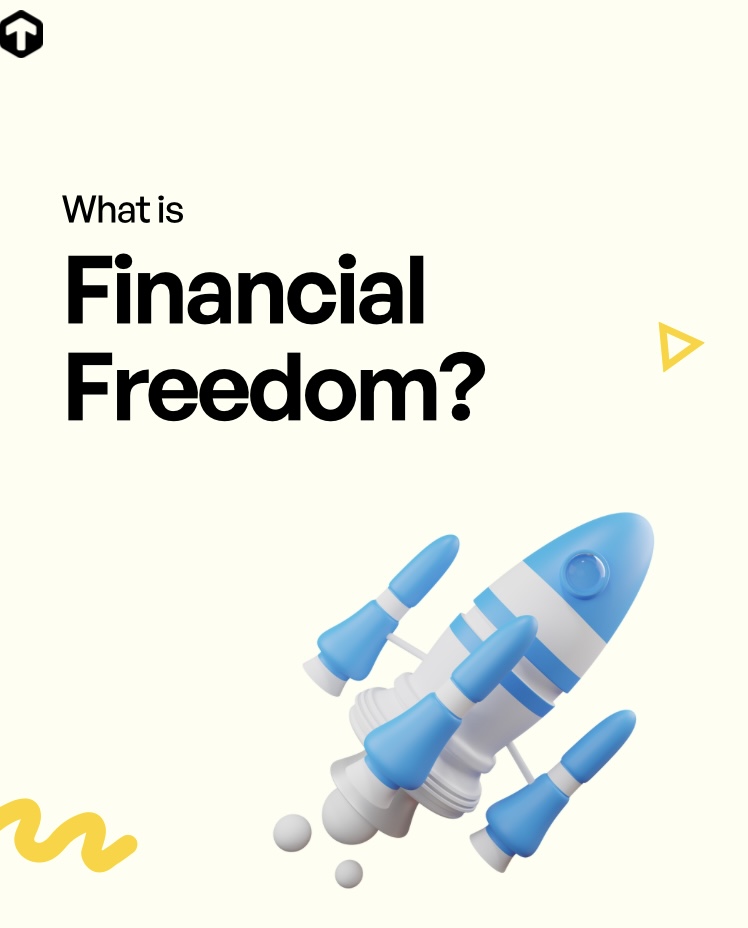Have you ever wondered what life would look like without the constant pressure of bills, debts, and living paycheck to paycheck, Imagine being able to live the life you want, save for your goals, invest in your dreams, and never lose sleep over your finances again. Sounds like a fantasy? It’s not.
Financial freedom is real, and in this blog post, I’m going to show you exactly what it means, why it matters, and most importantly, how you can achieve it.
What is Financial Freedom?
Financial freedom means having enough money to cover your living expenses without depending on a paycheck. It’s about reaching a point where you have options, not obligations. In simple terms, you’re no longer tied to a job or income source because your savings, investments, and other passive income streams take care of you.
To put it another way, financial freedom means:
You no longer worry about how to pay your bills at the end of the month.
You have enough money saved or invested to handle emergencies or unexpected expenses.
You’re free to make choices—whether it’s starting a business, traveling, or retiring early—without being restricted by financial stress.
For example, imagine you wake up tomorrow, and you don’t have to rush to work because your investments earn you enough money every month. That is financial freedom in action. You own your time and live life on your terms.
Why is Financial Freedom So Important, Especially in Nigeria?
Nigeria’s economy isn’t exactly easy to navigate. Between rising inflation, job insecurity, and increasing costs of living, achieving financial stability can feel like climbing a mountain with no end in sight. For many people, it feels like no matter how much you earn, it’s never enough.
Here’s why financial freedom is critical for you:
- Peace of Mind: No more sleepless nights worrying about money or unexpected bills. You’ll feel secure knowing you can handle life’s surprises.
- Freedom to Pursue Your Goals: Whether it’s starting your own business, traveling, or helping your family, financial freedom gives you the resources to make your dreams happen.
- Breaking Generational Poverty: If you grew up in a household where money was always tight, financial freedom allows you to create a better life for yourself and future generations.
- Retirement Planning: Nigerians often don’t focus on retirement until it’s too late. Financial freedom ensures you can retire comfortably without depending on anyone.
The truth is, achieving financial freedom isn’t just for the wealthy or lucky. It’s something anyone can attain, including you.
What Stops People From Achieving Financial Freedom?
Before we get into the practical steps, let’s address the obstacles. Why is financial freedom so elusive for many Nigerians?
- Living Paycheck to Paycheck: Many people earn money only to spend it all, leaving nothing for savings or investments.
- Lack of Financial Education: Schools don’t teach us how to manage money, save, or invest. Without this knowledge, it’s easy to fall into poor financial habits.
- Debt Trap: Loans, credit card debts, and high-interest borrowing can keep you stuck in a cycle of financial stress.
- Inflation and Unemployment: Rising costs and job insecurity make it hard to save or invest for the future.
The good news is, no matter where you are right now, you can start taking steps toward financial freedom.
5 Practical Steps to Achieving Financial Freedom in Nigeria
Here’s where the magic happens. Let me break down the steps you can follow to take control of your finances and build the life you want.
1. Start With a Clear Budget
You need to know where your money is going every month. A budget helps you track your income and expenses so you can plan better.
- Write down your monthly income (salary, side hustles, etc.).
- List your expenses (rent, transportation, food, bills, entertainment, etc.).
- Identify areas where you can cut back. For example, eating out less or reducing unnecessary subscriptions.
By living below your means, you can start saving and investing the difference.
2. Build an Emergency Fund
Life is unpredictable. You might lose a job, face a health crisis, or need urgent car repairs. An emergency fund acts as a safety net for unexpected expenses.
Start small! Save up to 10-20% of your income until you have at least 3-6 months’ worth of living expenses. Keep your emergency fund in a separate, easily accessible bank account.
This one step alone will reduce a lot of financial stress.
3. Eliminate and Avoid Bad Debt
Debt with high interest can ruin your finances. Focus on paying off debts like personal loans, credit cards, or payday loans as quickly as possible.
Prioritize high-interest debts first. Avoid borrowing unless it’s for investments like education or a business. The less debt you have, the closer you are to financial freedom.
4. Invest Your Money Wisely
Saving is good, but investing is where real financial growth happens. Your goal is to create multiple income streams that work for you, even while you sleep.
- Start small: You don’t need millions to begin. Consider options like mutual funds, stocks, real estate, or even digital investments.
- Learn: Educate yourself about investment opportunities in Nigeria.
- Diversify: Don’t put all your eggs in one basket. Spread your investments to reduce risk.
When you invest, your money starts making more money. That’s how you build lasting wealth.
5. Develop Multiple Income Streams
Relying on just one source of income is risky. To achieve financial freedom faster, explore other ways to make money:
- Start a side hustle (freelancing, e-commerce, or digital services).
- Monetize your skills (teaching, consulting, or offering a service).
- Invest in passive income opportunities (like rental properties).
The more income streams you have, the more financial security you gain.

Conclusion
Financial freedom isn’t just a dream—it’s a reality waiting for you to claim it. However, you must note that financial freedom is a journey, not a destination. Achieving it requires time, discipline, and consistency. You might not see results overnight, but every step you take brings you closer to a stress-free, fulfilling life.
Start small. Set clear goals. Celebrate your progress along the way. Whether it’s paying off debt, saving your first million, or building a solid investment portfolio, every achievement matters.




